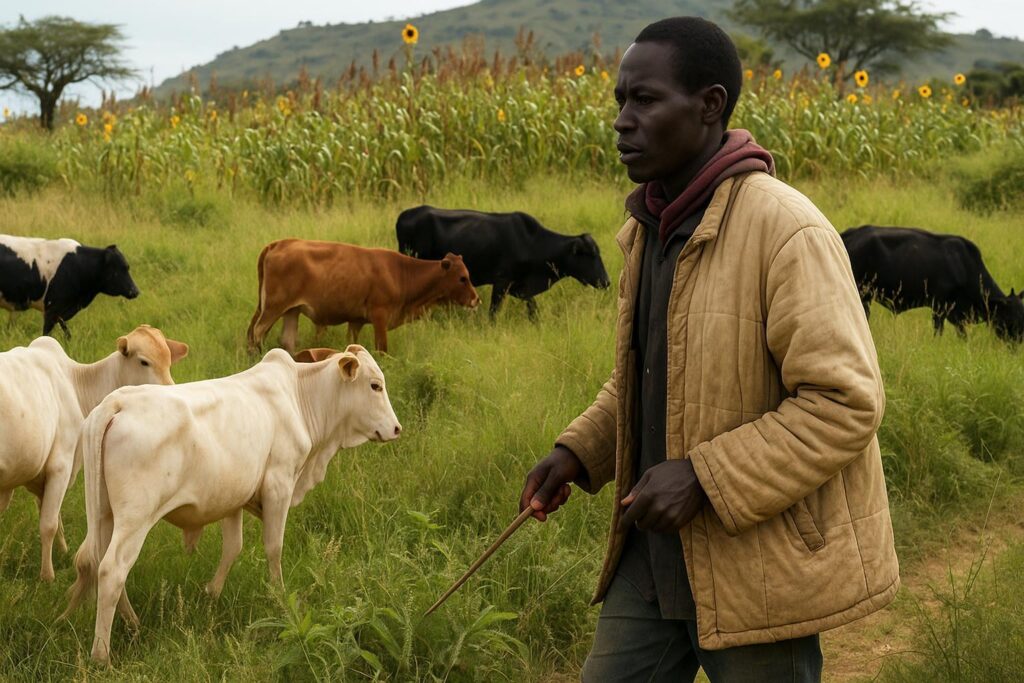Mounting Pressure on Mvolo Farms
Mvolo County officials say herds of cattle crossing from neighbouring Lakes State have trampled sorghum, maize and groundnut fields since early July, threatening the county’s fragile food supply.
Commissioner Amaai Ruben Majok told reporters the losses are weekly and cumulative, adding, “We urge calm, but hunger is real.” His office has flagged the case to the State Ministry of Local Government and Law Enforcement for mediation.
Farmers Voice Growing Desperation
In Kokori Village, farmer Martha Ikuya walks her ravaged plot each dawn, hoping surviving shoots might pull through.
“Our farms are all we own; once cattle feast, children sleep hungry,” she lamented. Similar testimonies ripple across Mvolo, where agriculture underpins both diet and income.
Civil Society Demands Rapid Action
Edmund Yakani, Executive Director of CEPO, urges Juba and state capitals to enforce grazing regulations before frustration erupts into bloodshed. He warns that inertia could compound food insecurity and undo gains made in community reconciliation programmes.
Presidential Directive in Limbo
A 2017 presidential order instructed herders to vacate the Equatoria region, yet implementation remains patchy, officials acknowledge.
Commissioner Amaai appeals to Lakes State authorities to escort the animals home before the dry season tightens competition for pasture.
Outlook as Rains Retreat
With clouds thinning, residents fear another lean harvest will push households toward emergency thresholds. Aid groups monitor metrics, but locals still pin hopes on a negotiated cattle withdrawal and an early start to the next planting cycle.
Stakeholders Search Common Ground
State lawmakers propose community dialogues combining chiefs, pastoralists and farmers, echoing regional traditions of shared land management. Observers note that success will depend on swift logistical support and clear incentives for herders to leave voluntarily.


